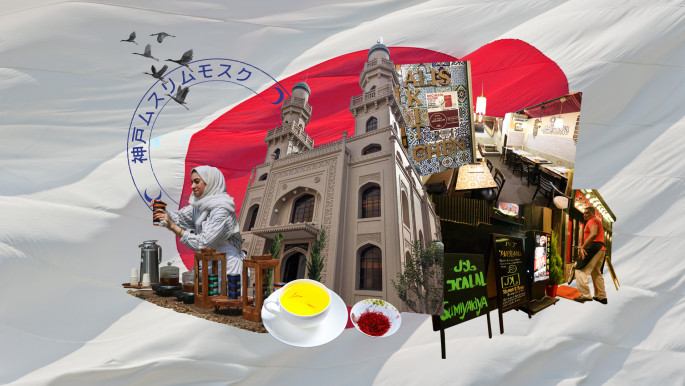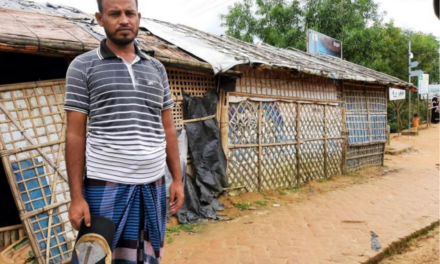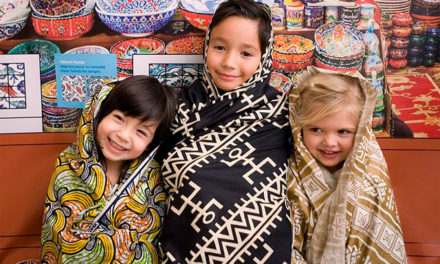When most people think of Japan, their minds typically wander to anime, cutting-edge technology, and sushi.
For the longest time, that was my own perception of a country that felt as though it existed in a world entirely its own.
But when I finally arrived, I wanted to see what navigating Japan would be like as a Muslim. Would it be easy to find halal food? How do the Japanese treat Muslims? Ultimately, I wanted to understand: how does Islam’s crescent fare in the land of the rising sun?
Without a doubt, Japan is home to some of the world’s finest cuisine, with dishes like ramen and sushi being iconic representations of the country.
Unfortunately for Muslims, much of this food is based on ingredients like pork and alcohol. But fortunately, halal options are now increasingly available.
My first introduction to Japanese cuisine was at Horyu Ramen, a local restaurant chain in Sapporo that has been operating for over 65 years. To my relief, they offered a halal menu, which included Jingisukan (Genghis Khan) ramen — a grilled mutton dish said to have originated from Japanese workers who had spent time in China.
Unlike most ramen, which is made with a pork-based broth, this one uses miso, or fermented soybean paste, as a substitute. It didn’t disappoint. The broth was flavourful, the meat was tender, and to this day, it remains the best ramen I’ve had in Japan.
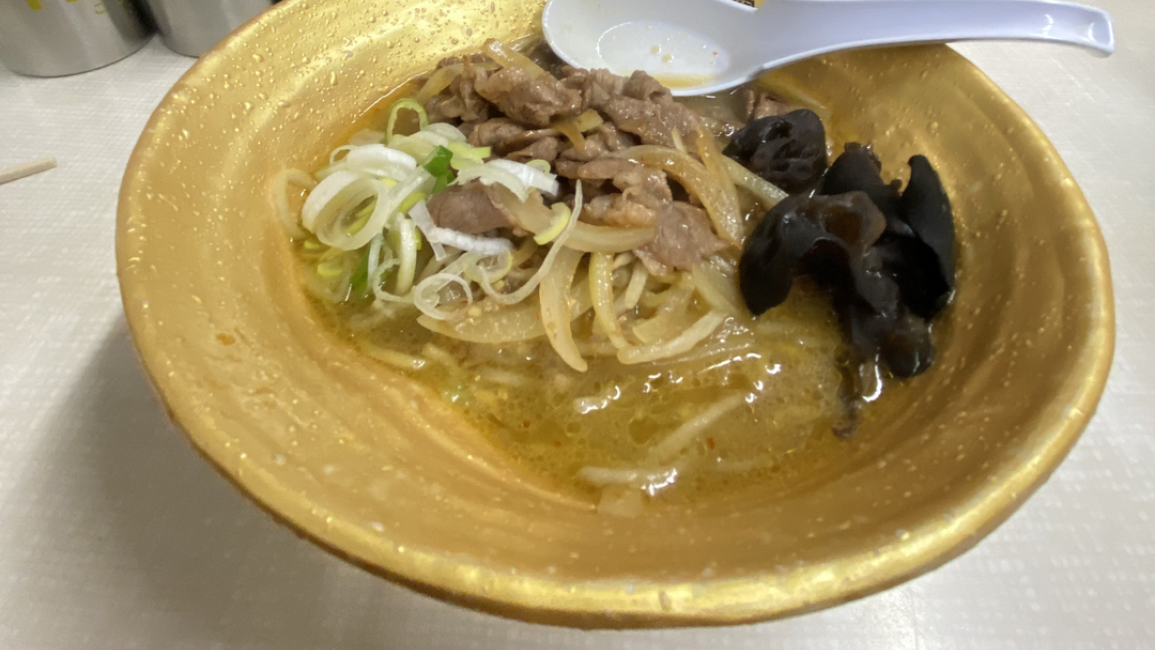
The Jingisukan ramen [Adnan Saif]
Halal flavours
Travelling south to Osaka was like stepping into a different world. While Sapporo felt calm and closely tied to nature, Osaka pulsed with the energy of a major city. It was here that I found some of the best non-Japanese halal food in the country.
On my first night, I visited a shawarma stall run by two warm and welcoming owners — Yahya from Egypt and Saeed from Uzbekistan. They treated me like family from the moment I arrived, and the flavours of the shawarma transported me straight back to the Middle East.
As we spoke, I asked Yahya what life in Japan was like for a practising Muslim. “God is here and there [back home],” he said. “You have to strengthen your relationship with Allah. People can live in Muslim countries and not be as strong in their religion as someone living in a non-Muslim country. It all depends on your iman [faith].”
Our conversation lasted over an hour, and along with the homely flavours of the food, I felt moved by the warmth and hospitality I had received.
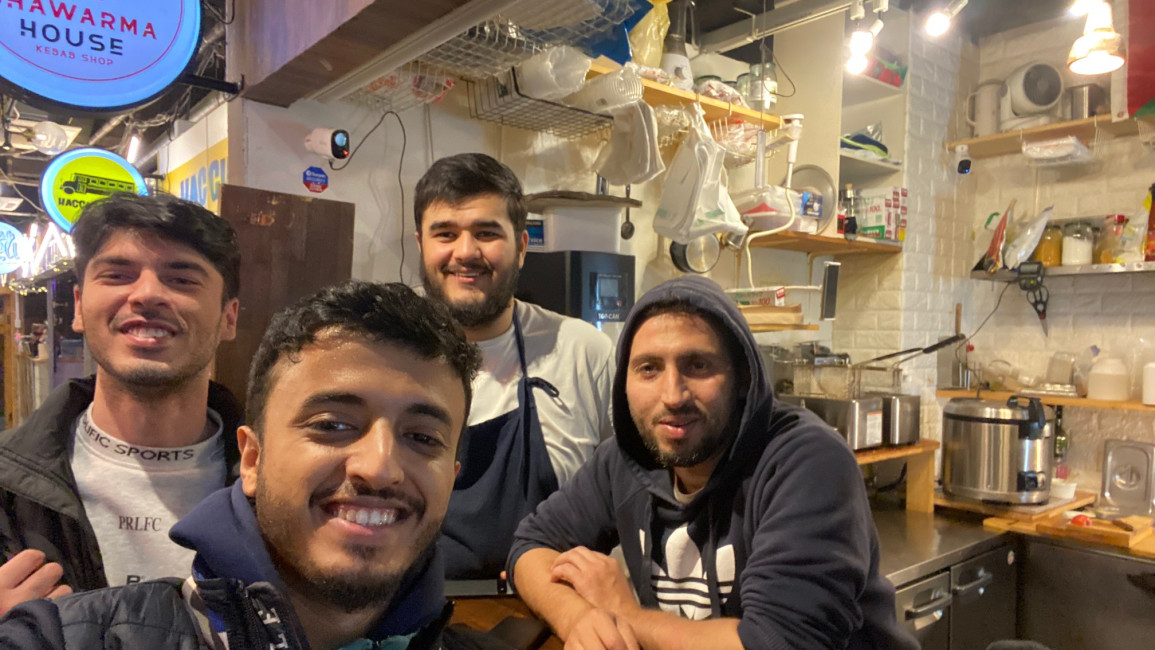
Shawarma stall run by Yahya and Saeed [Adnan Saif]
The next day, I visited Ali’s Kitchen, a small but lively Pakistani and Arabic restaurant located in the bustling heart of Osaka.
The owner, Ali, greeted every customer with a smile that seemed to light up the entire space. When the food arrived, the colours and aromas were so vivid they could have come straight from a traditional Pakistani home — and it quickly became clear why the restaurant had been recognised with Michelin awards.
During the meal, Ali shared his story. After leaving university in Abu Dhabi, he travelled through 43 countries, worked for the Japanese police department, and eventually settled in Japan to open his own restaurant.
Listening to his story, along with hearing from my newfound friends Yahya and Saeed, helped ease my assumptions about the challenges of being Muslim in Japan.
Faith and culture in harmony
According to The Economist, Islam is currently the fastest-growing religion in Japan, with more than 110 mosques across the country as of 2021.
One of the most notable is the Kobe Muslim Mosque — the oldest mosque in Japan — which was built in 1935 by Czech architect Jan Josef Švagr.
Its striking Indo-Islamic architecture stands tall among sleek modern buildings, and seeing its minaret in a non-Muslim country gave me a powerful sense of familiarity.
At the mosque, I met Imam Yusuf Fujitani — a 30-year-old Japanese convert to Islam who had recently graduated from the Islamic University of Madinah.
Raised as an atheist, he was always drawn to big existential questions. After exploring religions including Buddhism and Christianity, and travelling to Pakistan and Malaysia, he eventually found clarity in Islam. In 2014, Yusuf embraced the faith at Kobe Mosque. Now, a decade later, he leads prayer at the same mosque where his journey began.
Yusuf also shared the mosque’s remarkable history. It survived the bombing of Kobe during World War II and later withstood the devastating 1995 Hanshin Earthquake, earning it the nickname ‘the Miracle Building’ from the local community.
He also described his approach to dawah (Islamic outreach), which focuses on highlighting the similarities between Islam and Japan’s main religions — Shintoism and Buddhism. According to Yusuf, four to five Japanese people revert to Islam at the Kobe Mosque every month.
After speaking with Yusuf, I became curious about how Japanese people generally view Islam. So, I spoke with the mosque’s muezzin, Mohammed, who is originally from Sri Lanka.
“I feel that there is no Islamophobia here because Muslims are a minority,” he said. “If it became bigger, it could upset people, but that hasn’t happened. Muslims here even inherit Japanese qualities.”
With Mohammed’s words, it became clear that Muslims in Japan had embraced many of the country’s values, such as cleanliness, respect, and modesty — values that naturally align with Islamic principles.
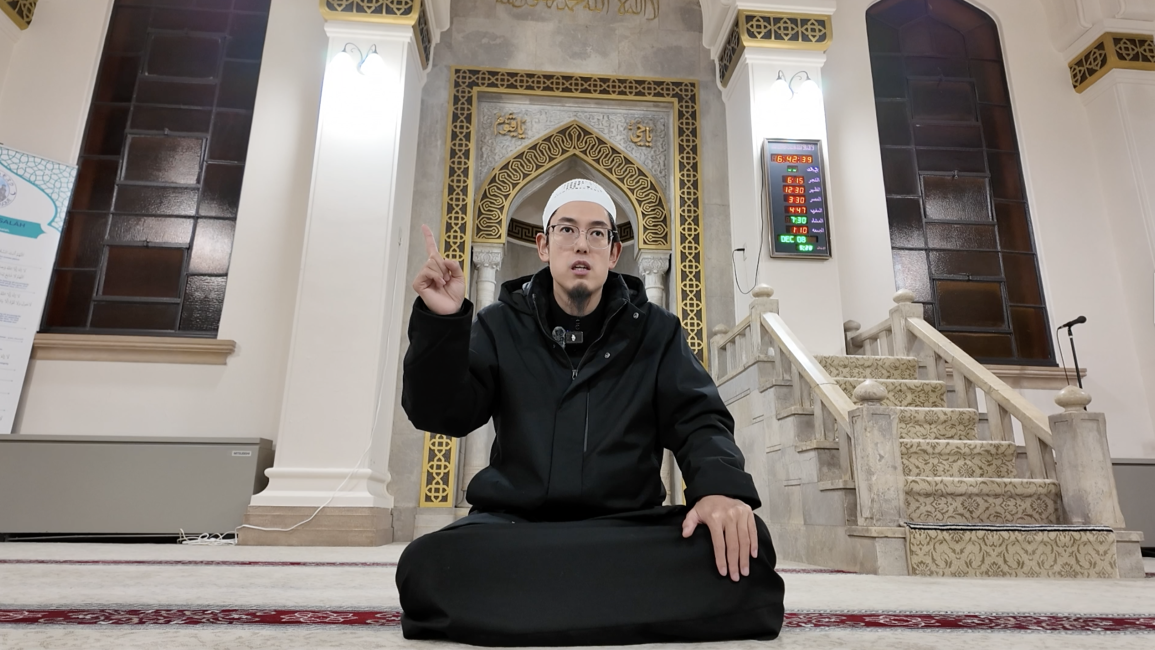
Imam Yusuf Fujitani pictured inside Kobe Muslim Mosque [Adnan Saif]
Sense of belonging
A short two-hour flight from Osaka took me to Okinawa, Japan’s southernmost region.
When I landed in the capital, Naha, it felt like I had stepped into a tropical paradise, much like Hawaii. The difference in climate was striking — from the freezing temperatures up north to the warm 20-degree sunshine in Okinawa.
Interestingly, Okinawa is known as a Blue Zone, one of five regions in the world where people live longer than the global average. In fact, it’s common to see elderly people in Naha staying active and engaged in daily life.
Regarding my experience with Islam in Okinawa, it centred around its mosque, located about 40 minutes from Naha.
In contrast to the grandeur of Kobe Mosque, Okinawa Mosque felt more like a traditional Japanese home, complete with a kitchen and a living room that doubled as the main prayer area.
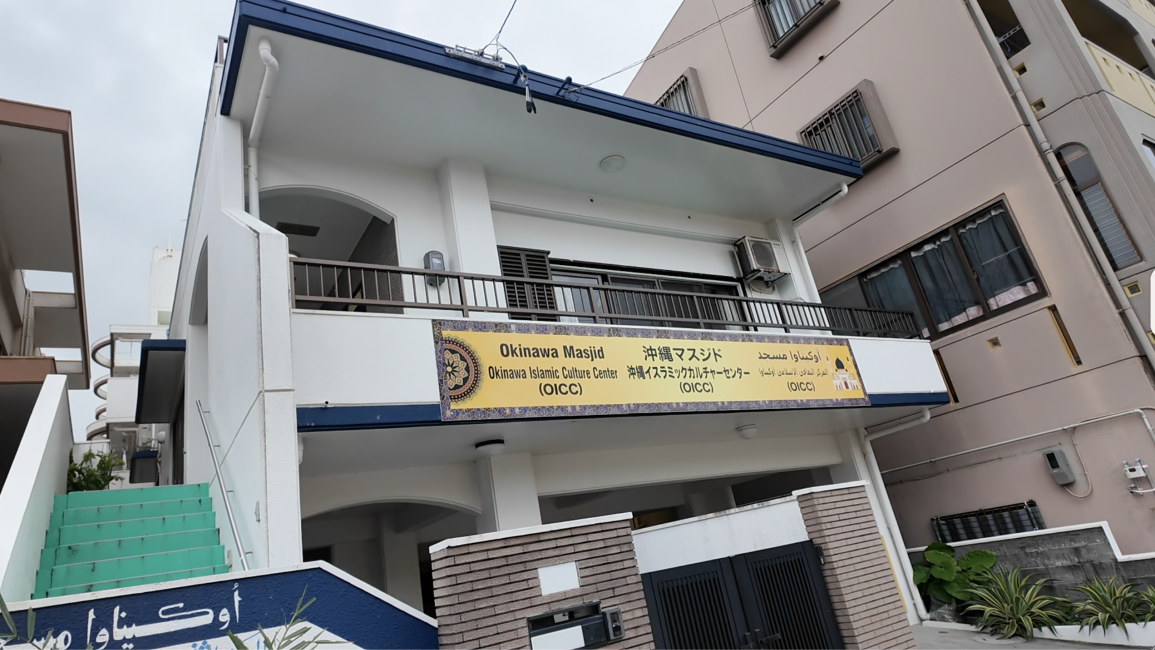
The Okinawa Mosque [Adnan Seif]
To my surprise, the door of the mosque was unlocked, and there was no one inside.
I waited until prayer time before meeting Tayeb, an Afghan engineering student who had been living in Okinawa for two years. He explained that the mosque is always open and is maintained by members of the local Muslim community whenever they are available.
The trust within the community and the tolerance shown by Okinawans in allowing the mosque to remain open at all times in a non-Muslim country were both a pleasant surprise. This experience highlighted the Okinawan tradition of moai — strong social support networks — which, I realised, played a significant role in helping the small Islamic community thrive here.
“Most Muslim students who leave to study elsewhere always call back and say how much they miss Okinawa, and how they’ve never found a community like here,” he told me.
After our chat, Tayeb kindly offered me saffron tea and cooked rice with chicken breast using ingredients from the mosque’s small halal market, as Okinawa had no halal-certified restaurants. I left feeling full, not just from the food, but from the sense of belonging I’d found. I realised that, as a Muslim, I now had a home in Okinawa.
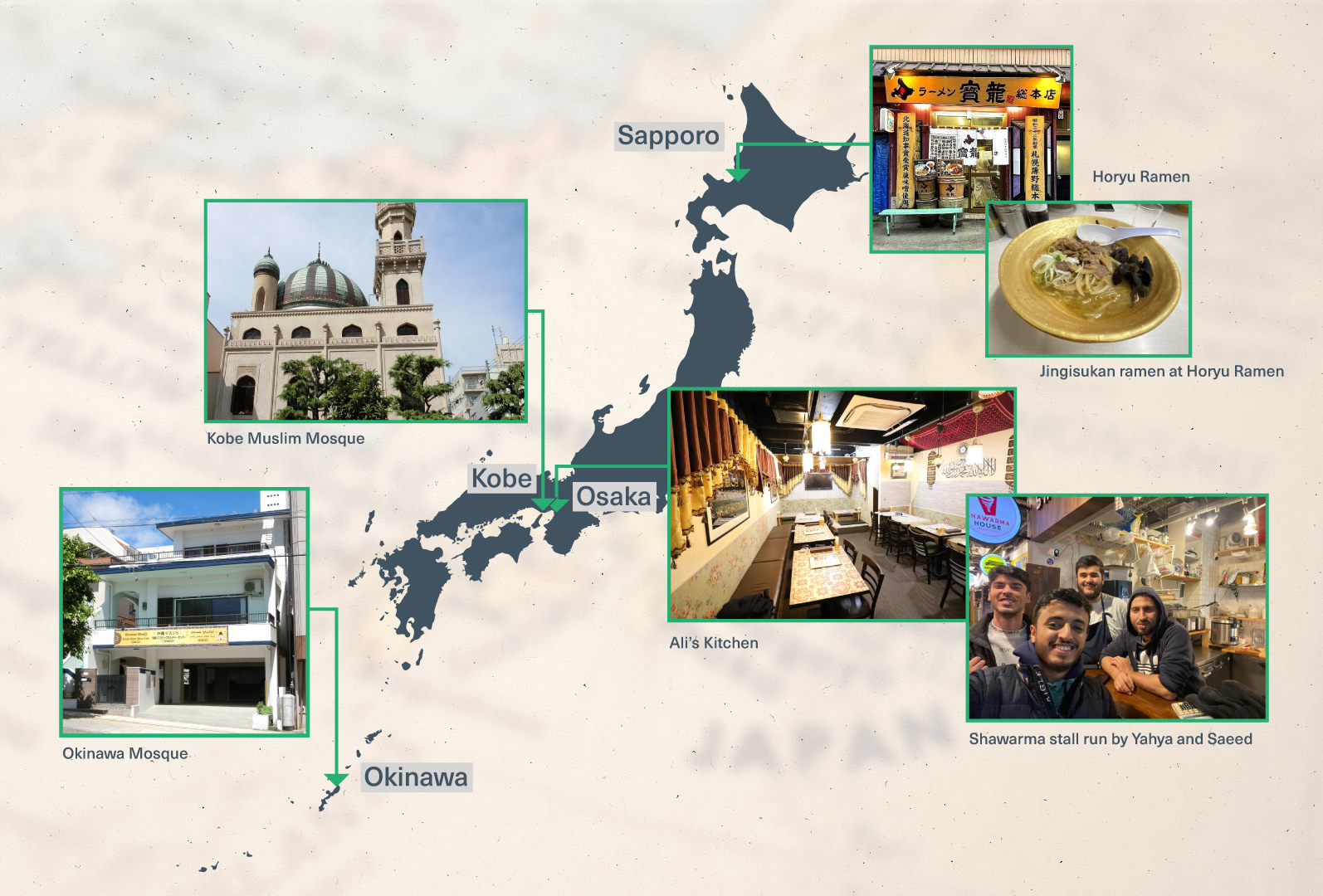
A map of Adnan’s travels across Japan, highlighting the places he visited and showcasing aspects of Muslim life in the country
Worth the visit
By the end of my trip, my preconceptions about Islam in Japan had disappeared.
Halal food was readily available in most major cities, and the Muslims I met seemed content living in Japan. Even in Okinawa, where halal options were limited, the strong sense of community more than made up for it.
It became clear that the shared values between Islam and Japanese culture allowed Muslims to live authentically, holding onto their traditions while embracing local customs.
For Muslims considering a visit, I highly recommend Japan as a destination.
It’s a place where you can leave behind any misconceptions and experience not only the country’s diversity, nature, and uniqueness, but also witness the thriving presence of Islam in the land of the rising sun.
